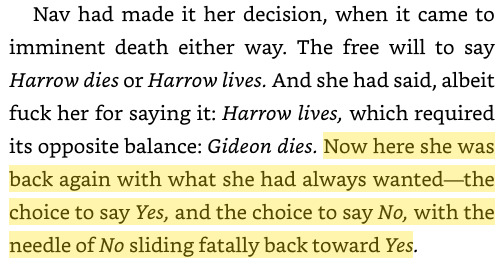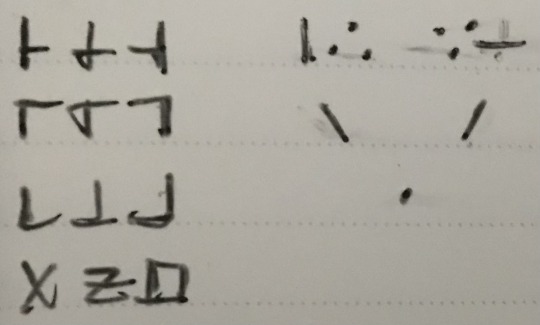#Default syntax
Explore tagged Tumblr posts
Text

PHP Is Scripting Language that is used to create websites, applications, customer relationship management systems and more.
0 notes
Text
Messy syntax

#lmk#lego monkie kid#lmk syntax#monkie kid syntax#neon colors#tw blood#vent art#i project onto him by default#hes a traumatized boy#i wanna take care of them#my art#digital drawing#heartstrings
26 notes
·
View notes
Note
i never know what the time is for you but i'm always wishing you the best constantly forever because you are awesome and loves you 🫶🫂
<3
i'm in GMT (i live in england), so it's 4:12am rn.
and thank you for the kind message!! i have no idea who you are but same back at you <3
#you don't quite write like anyone i'm familiar with so unless i'm being stupid i don't think i know you?#but feel free to ask stuff off anon in future#<- this goes for anyone btw#ask#anon#also i am a big fan of that “and loves you” linguistically speaking#i'm assuming that's a dropped “i”? but then the verb agreement doesn't line up with that#which i'm assuming is mostly to show it's not meant to be “you love” which i'd assume otherwise from the syntax#and so loves is here as the default “most verbforms are like this”#or something#alternatively there was an accidentally dropped “god” here#but i don't think that's likely#for context for everyone else this ask is in response to that post i made abt being up on tumblr at 4am#i responded to it late
1 note
·
View note
Text
New: Search operators for better searching!
We hear you, and we share your frustrations: it’s hard to find a specific post. You know it has a particular tag or phrase, and it was posted on this date, or at least, within a specific year. But you can't find it!
So, today, we’re excited to announce that you can use ✨ advanced search operators ✨ in the search bar now! You can now say potato from:staff year:2021 to easily enjoy that video of a potato being microwaved again.
Before we jump into the details, a couple of caveats to note:
These search operators are only available in the main Tumblr search bar. They don’t work in the search bar in individual blogs.
The search operators only work on posts created in 2017 or later.
OK! Let’s go explore these operators!
Exact phrase match
When you surround your query with regular double quotes (not curly quotes), it will match posts with that exact phrase in the post's text content, or that exact phrase as a tag.
For example, "chappell roan is roan of arc" matches posts with that exact phrase in the content, and also matches posts that have the exact tag #chappell roan is roan of arc.

Match operator
By default, the query matches the post on either the text or the tags.
You can use match:text to specify you want to search the post content, or match:tags to search the post tags. For example:
sword world match:text looks for posts with the words "sword" and "world" in the post content.
sword world match:tags looks for posts with the words "sword" and "world" in the post tags.

From operator
Use from:blog or from:@blog to find only posts by a particular blog.
For example, halloween from:staff finds all posts by @staff that has the word "halloween" in the post content or tags.

Year operator
Use year:YYYY to find posts from a particular year.
For example, halloween year:2019 finds all posts from 2019 that has the word "halloween" in the post content or tags.

Date operator
Use date:YYYY-MM-DD to find posts from a particular date.
For example, halloween date:2019-10-08 finds all posts created on October 8, 2019 that has the word "halloween" in the post content or tags.

All together
You can combine all the tools above to form even more specific queries:

Congrats! You’re now a Tumblr search wizard! 🪄
Other syntax
As a reminder, you can already search by a tag, or by multiple tags:
Prefixing your query with # performs a tag search — that is, it will find posts with that exact tag. For example, #star wars will only return posts with the #star wars tag.
You can search for multiple tags at at time. For example, #star wars #art will find posts that are tagged with both the tag #star wars and the tag #art.
You can combine this with the new operators to find what you are looking for!
A guide on how to use the new operators has also been added to our Search and Filtering Basics Guide.
Tumblr Patio support
The enhanced syntax makes Tumblr Patio even more powerful. You can now open multiple search columns each with different fine-tuned queries that use the syntax above to get you customized feeds.
Feedback
We’d love to hear what you think! Please share your feedback in the replies and reblogs of this post, or by reaching out to Tumblr Support.
19K notes
·
View notes
Note
Why do young kids sound so adult in old letters? Not just the ones you share, in general. It's one of the things that puzzles me about Yes Virginia, There is A Santa Claus. Were educational standards stricter? Was it actually parents writing for them?
If I had to guess, I'd say a decent part of this could be due to the fact that everyday, standard English at the time used a structure and level of formality we now associate with the elderly. It's similar to how teenagers in the past look older to us in part because we associate the styles of their hair and makeup with our parents and grandparents.
The first particular piece of syntax that popped into my head when I read this message is the placement of the word "have" in sentence structure. It used to be standard English grammar to begin questions about items or traits people possess with "have" rather than "do you have"; e.g. "Have you a pencil?" vs. "Do you have a pencil?".
If I were to hear the question "Have you any presents you'd like for Christmas?" my mind would default to imagining a formal, elderly person, as that's the only type of person I've ever personally heard use that syntax.
I think what we sometimes fail to consciously realize is that the stuffy, formal, 90 year old grandmothers we talk to didn't spontaneously start talking like that once they reached a certain age. They were taught certain grammar rules as children and continued to use them throughout their lives. We only associate that type of language with the elderly as the only people still alive to use it are now very old.
Education in the past also relied much more heavily on rote memorization and repetition, which I'd imagine caused people to more strictly adhere to the things they learned, including grammar, than we do now.
Children were taught in school how to write formal letters and those lessons were carried over even in letters to Santa.
I imagine in the future the phrase "I hope this email finds you well" is going to end up seeming (even more) oddly formal and dated, but people use it because that's what we were taught to do.
That being said, there are definitely Dear Santa letters written by parents, especially if the child is very young - but after 14 years of doing this I think I've developed a pretty good eye for spotting these. That's why I rarely post letters from children under school-age, with the exception of what I've taken to calling "toddler transcription" where the parents write down what their young child says word for word.
588 notes
·
View notes
Text

A happy little computer family [click "keep reading" for backstory stuff!]
Surprise! a Websurferz post, finally. I wrote some background for these three since I'm into writing familial relationships recently.
So yes! Even the websurfers have lore to them, ha. They don't seem like the types of characters to have too much lore to them, and they don't have as much as say the NBAF or IU characters. But they still have a background, this is one of my main stories after all.
So! Starting with Microchip and Vista, the two internet meme wives.
Vista was created way earlier than Microchip, following the popularity of the "Epic Face/Epic Smiley" meme in 2003. Similarly to Derpina's creation, she was created as a female version of the epic face. She was alone for a long time, but she made friends with the default computer assistants at least!
Though Vista had existed since the early days of 2000s internet and had her assistant friends, she was still lonely and bored. But even during those quiet years, she stuck around in the corners of old forums and obscure fan-made animations.
Then, in 2008, everything changed when Microchip was finally uploaded.
Microchip, being more wired-in to the chaotic humor of Rage Comics, burst onto the scene with wide eyes, sharp sarcasm, and the unmistakable chaotic energy of mid-2000s meme culture. She was derived from "Derpina", sure, but she had developed her own personality; clever, playful, and quick-witted, often using old error messages and Comic Sans on purpose just to get a rise out of people as a way of being cocky.
Vista was in LOVE. She had never thought there'd be another meme-created extension. She was shy around the new extension at first, but Microchip loved Vista's sweet nature so much she pulled her into a hug as soon as they met. The two talked a lot, bonding closely from being meme-derived ladies...and then of course, they started to fall in love with each other due to their relateable personalities to each other and mutual playful nature.
Of course, the web kept evolving, and with it came new computer extensions. Characters born not purely from memes or comic panels, but from the blurred line between software tools. One such creation was P1X3L, a digital assistant who emerged sometime in 2009.
P1X3L wasn’t exactly planned like the meme wives were, she kinda came out of nowhere after Clippy's failure. She started off as a side project, one of those quirky customizable desktop companions coded by enthusiasts who wanted something cuter and sassier than someone poorly regarded like Clippy, but not as invasive as BonziBuddy. She had sleek, blocky animations and spoke in emoji-heavy syntax, and had a sillier, wittier personality. Microchip and Vista loved her as soon as they saw her.
Microchip took to P1X3L immediately. She loved her spark, her refusal to act like a perfect assistant, and her trolling sense of humor. They began calling her their "little byte" and dragged her into their chaotic computer family.
#websurferz#vista#microchip#p1x3l#my art#frutiger aero#my oc#character design#oc#shrimpbat ocs#original character#webcore
59 notes
·
View notes
Text
If you're a linux[1] user who deploys multiple devices, I implore you: learn the command `scp`. It will change your life
It lets you copy files over an ssh pipe; if there's an ssh server on that host, you can essentially directly address a known file on that filesystem and say pwease gimme. And it's roughly the same syntax as `cp`, just with a `[user]@[host]:` before *either source or destination*[2].
And the real kicker is that neither source nor destination need be local:

I copied a file from my web server to an icecast source client host by passing it through my phone.
Unreasonably handy tool to have on your toolbelt.
Footnotes under the cut.
[1] Okay, fine, you got me! It's not solely a linux util. SCP is part of the openssh suite, which means that it's available on virtually every OS under the sun... Including being included by default on Windows 10 1709 and later versions of Windows. It's already on your mac, your BSD system, and almost certainly your phone, too. SSH servers and *nix go together like picnics and baskets, though, so I wouldn't exactly pull the *average* windows user aside to recc' `scp`.
[2] What's most interesting to me is that the `[user]@[host]` is used for the SSH client to know where it's authenticating and how, but the actual filesystem location's format is not processed by the SSH client; it's the *server's* format, not the client, that matters for parsing the file location. In some cases this can lead to a mismatch on filenames that you're receiving vs requesting, but the -T flag disables that checking, and then use `[email protected]:D:\\Documents\\testdata.bin` (drive letter indicated and backslashes escaped) to refer to it
#openssh#scp#linux#i am sorry to secure contain protect fans who are uninterested in this being in your tags but. hash collisons happen
147 notes
·
View notes
Text
there's government in my pronouns class
in pronouns class
#I love words that have several meanings but one is default#like bc government in syntax isnt political but its so funny to think about#shout out to syntax for featuring time and pronouns and government#and trees#linguistics posting
2 notes
·
View notes
Text
I like to imagine that multilingual Bruce Wayne has low key shitty syntax in other languages. Whenever the league has to interact with civilians that speak a language other than English, they default to Bruce to talk to them and they’re like “wow, he’s so impressive. I wish I knew that many languages” but to the native speaker Bruce sounds like the equivalent of someone with a really thick southern accent in English
Justice League: man, Bruce must have spent a lot of time perfecting his language capabilities. Maybe I should work on doing the same
Bruce to the civilian’s ears: I done seen that bad guy come through ‘ere. Where’d he go running’ offta?
#batman#batman headcanon#justice league#justice league headcanon#bruce wayne#genuinely a sentence I heard growing up in the south
172 notes
·
View notes
Text
I think that conlangs are a very useful way of seeing how the biases of linguistic theory manifest when applied by amateurs (and occasionally professionals). When linguists are promoting their theories they often like to make the claim that they can account for all phenomena, even if there's some clear foci for their actual attention. So the outputs of conlanging as a hobby make an interesting case study of the application of these theories, because the theories bias the kinds of structures conlangers actually end up including in their languages.
Specifically, it seems clear to me that internet-based conlangers especially show the clear effects of the assumptions made by what Jim Blevins terms the 'Post-Bloomfieldian Structuralism' that has been the default mode of linguistic analysis and theorising for decades now.
In phonology this manifests with the focus on phonemes and phoneme inventories, partly at the expense of phonotactics but especially phonetics. The result of this is a flattening of phonological structure; each of these phonemes ends up being tret as a unit of equal status within the system, with any kinds of distributional asymmetries between phones only included as an afterthought by means of some phonological rules.
It's why you get channels like Conlang Critic on Youtube pronouncing each of the individual phonemes of a conlang like that tells you what you need to know about the actual sound of a language. I rarely see any kind of restricted distribution or positional neutralisation of the kind seen in e.g. the Mandarin Chinese palatal series.
Morphology is where this kind of fixation most strongly manifests, because morphemes are an even worse fit for the morphological phenomena of natural languages than phonemes are for phonological phenomena. In effect what this leads to is the same kind of atomisation that we see with phonology; all 'morphemes' are tret as having equal status in the system, so you end up with a morphological system that just comes off as a phonologically more bound version of the syntax (but with more lists).
For instance, when was the last time you saw a conlang that made use of the concept of 'stem'? Or which showed syncretism between cells in paradigms? Have you ever seen a conlang that made use of a morphological pattern that could be considered 'morphomic'? I could go on.
None of these are somehow 'strange' or 'exotic' phenomena; they're found to some extent in pretty much all Romance languages, perhaps most elaborately in French, and much of this also crops up all over Germanic too.
I think there might be some of this tendency in the lexicon too; homophony and polysemy seem oddly infrequent in conlangs, even though they're ubiquitous in natlangs (English I/eye and you/ewe are particularly neat for showing that not even pronouns are safe from this). I've not got as much to say on this as I don't tend to pay so much attention to conlang lexicons, so I could be wrong on this one.
The actual relationship of conlangs to linguistic theory is messy, and I'm acutely aware that this is largely anecdotal. Indeed, plenty of experienced conlangers make a point of highlighting at least some of these issues, and there's definitely conlangs that avoid many of these issues (Siwa/Siųa is a good one for this, you'll have to dig through the thread to get to the actual grammar). My intent here is mainly to get some discussions going, because the real question is actually 'how do we get the conlang community to understand these phenomena and make use of them at the kinds of rates that we actually find in natural languages (which is pretty much any language with morphology, with maybe a couple of exceptions)?'
71 notes
·
View notes
Note
Hi! I read your meta about harrow intending to go back her body and consume gideon's soul. So what does the phrase "There's a difference between keeping a shred of dance card and saving the last dance" mean by this your pov?
For anyone who's seeing this post and hasn't seen the aforementioned meta that prompted, here it is for reference.
TLDR; The argument is that Harrowhark didn't willingly choose to stay in the River at the end of HtN. Presented with no viable alternatives to save Gideon's soul, she chooses to go back to her body, but is unable to because Alecto has already displaced both her and Gideon.
The main supporting evidence for this is that within the sequence where Harrow leaves the Canaan House bubble and ends up in the unreal version of the Locked Tomb (where Alecto's body is missing and her chains are broken), there are times in the narration where Harrow does things not knowing why she does them, or where things she expects to happen/experience don't occur.
As a reader I default to close reading when I'm trying to understand what's happening in a scene-- which means taking into account not only what is being said (the text on the page), but how the author is choosing to say it (syntax, word choice, sentence structure, etc). With that in mind, the entire ending of Chapter 53 of HtN is written less like Harrow is making a deliberate choice to stay in the River and more like Harrow is merely acting on impulse after being thrown into an unexpected situation.
---
@tiny-blackbird Sorry that it took me so long to answer this!
I will begin by prefacing that my argument that Harrow had actually chosen to leave the River is not me also arguing that Harrow was gonna completely give up on saving Gideon. I think she's much too stubborn and maladjusted to do that so quickly.
Rather, I think the scene with Magnus and Abigail was a moment of realization for Harrow that she has no choice but to go back, resume consuming Gideon's soul, and become a full Lyctor for the time being, even though she very obviously doesn't want to. And I feel like the narrative supports this view!

Here it's clear that Harrow is genuinely being swayed by Abigail and Magnus' argument and the narrative takes a moment to acknowledge that.
The "choice" being referred to is the choice of whether to consume Gideon's soul— the choice of lyctorhood, essentially— and is referenced earlier in HtN when Harrow reads the letter she addressed to herself.

But it's different now: in the Canaan House bubble, Harrowhark is realizing that she has no options available to her but to live. She's making the painful choice to say "Yes" this time.
I feel like a lot of people forget this moment when they say that Harrowhark chose to stay in the River to save Gideon's life. I understand why, given that almost directly after this Dulcinea tells Harrow about her body being controlled by something.
But I think that also fails to take into consideration that even if Harrowhark wanted to take the chance on it being Gideon who was controlling her body (even when Dulcinea herself wasn't sure), Harrowhark, again, has no viable alternatives to remain in the River (at least, no options that she knows of at the time).
I think Harrow is willing to do a lot to save Gideon's soul, and the lobotomy is proof of that, but if she goes insane in the River she loses any chance she has of saving Gideon, meanwhile if she goes back she can think of other methods. She could try the lobotomy for a second time lmao.
Back to your question, I think "There's a difference between keeping a shred of dance card and saving the last dance" is Harrow pointing out that there's a difference of hope in the comparison Magnus is making here.
In keeping the shred of the dance card, Magnus had already given up hope of continuing a relationship with Abigail, just as he is asking Harrowhark to give up hope about trying to bring Gideon back from the dead.
Meanwhile with Harrowhark— you don't save the last dance for someone if you've already given up hope that they'll show up to the dance in the first place.
Magnus had given up hope. Harrowhark has not.
What Harrow's saying is a rejection of the idea that she's merely a mausoleum for Gideon, holding onto whatever she can of who Gideon was a person.
Instead, Harrowhark is mourning Gideon's death just as much as she is eagerly awaiting, and expecting, Gideon's return. She's saying she's not so much a mausoleum, it's more like she's watching over Gideon's things until Gideon can come back to claim them.
That's what I think Harrow means by saving the last dance, and I think that's reflected in how Harrow already had a letter written for Gideon alongside the envelope that contained Gideon's sunglasses.
Even in her mourning Harrow anticipated that she'd be able to bring Gideon back.
#and she did help bring gideon back!! just like.. as a revenant lmfao#mission failed successfully#the locked tomb#harrowhark nonagesimus#gideon nav#harrow the ninth
39 notes
·
View notes
Text
Throw caution to the wind and remove all type checks! Accept the string as a list of length two! If no one ever sees it then no one will ever know how horrible it is.
But yeah, python is stinky and the best solution would be writing your own C package :/
This is sort of an indirect addition to this ask maddy got about learning rust, I haven't actually gotten to learning rust yet but I do want to talk about an incident I recently had with python (I think with C the reasons why you'd rather not use it are fairly obvious) So recently tried to implement a basic matrix class in python, and since I wanted to do a whole thing where I did my own implementations of numerical optimization and more general linear algebra stuff, I tried to do it "properly" and make it "robust" and everything, but without installing any external libraries.
And to me, that obviously involved making sure that the matrix is formatted sensibly, i.e. that a matrix contains m rows of n numbers each. This seemed like a very obvious thing you should do in any serious piece of code, since if the contents of a matrix are accidentally formatted in a weird way, then you might get errors, or, significantly worse, python might just decide that it "can handle them" anyways and do some really unintuitive dumb stuff that's really hard to debug. (See this older post of mine for an example of how the pythonic willingness to work with bad inputs leads to really weird unintuitive behavior).
Turns out this is not something you can do directly in python without installing external type checking libraries! And I didn't want to just loop through all the contents and check their type individually during object creation, since that felt incredibly slow, stupid and inefficient. It didnt help that my algorithms theory exam was coming up soon, which meant I was thinking about asymptotic runtimes all day.
And so I was like "well surely at least it's easy to check for a matrix being a 2D array with consistent row sizes". However, at this point, with dawning horror, I came to a realization:

and at this moment I could just feel pretty much all of my remaining "python is easy to work with" attitude turning into dust and soaring away in the wind. If anyone here knows a way to enforce a given argument being a 2D array of numbers with consistent row sizes that doesn't involve O(n*m) overhead during object creation and that can be implemented in python using only internal modules (no external type checkers that need to be installed manually first) please tell me lol
#also I think it has matrices by default so probably not what you're looking for for this project#but you shoulf check out Julia#it has simplistic syntax like python but runs way faster and is generally better suited for computing
50 notes
·
View notes
Text
The psychotic is an architect of absence, a mason of the void, compelled by the spectral whispers of an Other that does not exist. Where language fractures—its grammar corroded, its signifiers adrift—the psychotic hears not silence but *command*. The voices that plague them are not mere hallucinations but imperatives from a phantom sovereign, an Other conjured from the raw static of the Real to demand reparation. This is no passive affliction but a vocation: to rebuild the shattered edifice of the social link, brick by delusional brick, in a world where the Symbolic has defaulted on its contract. The psychotic does not flee the defect in language; they *inhabit* it, becoming both symptom and surgeon, patient and prophet.
Autism, by contrast, is a silence without echo. The autistic subject has not merely rejected the Other—they have *evacuated* it, leaving behind a fortress of solitude where the social link does not even register as loss. There are no voices here, no spectral injunctions, only the hum of a closed system, a syntax turned inward. If the psychotic is haunted by the Other’s absence, the autistic is its absolute negation—a sovereign of the void, untroubled by the demand to repair what was never whole. The autistic does not hallucinate coherence because they refuse the very fiction of a social bond. Theirs is a heresy of indifference, a jouissance that needs no audience, no shared grammar, no Other to witness its pulse.
But the psychotic—ah, the psychotic is a martyr to the social. Their delusion is a *gift* to the world, however unwelcome. Schreber, prostrate before his divine persecution, weaving a cosmology from the scraps of a foreclosed Symbolic; Joyce, dismantling English into a private pidgin of puns and portmanteaus; even the paranoiac scribbling manifestos in a basement—all are laborers in the quarry of the Real, hewing new structures from the bedrock of collapse. The voices that drive them are not madness but *mission*: to suture the wound in the Symbolic with the thread of their own making. Their delusion is a *sinthome* elevated to civic duty, a mad utopia where the social link is reinvented as a hall of mirrors, reflecting only the singular logic of their jouissance.
This is the cruel irony: the psychotic, condemned by the world as broken, is its unwitting repairman. Where autism abandons the social to its entropy, the psychotic *insists* on its salvage, even if the blueprint is illegible to all but themselves. Their auditory hallucinations are not breakdowns but *blueprints*—a cacophony of orders from an Other who exists only in the negative space of language’s failure. To hear voices is to be interpellated by the void, deputized as the architect of a new regime. The psychotic does not merely endure the Real; they *enlist* it, drafting their delusion as a constitution for a nation of one.
Jungle music, in its own way, is a psychosis of sound. The genre’s frenzied breaks and destabilized rhythms are not a rejection of structure but a *reconstruction*—a new social link forged in the crucible of sonic collapse. The DJ, slicing and dicing amen breaks, is a psychotic cartographer, mapping a territory where the old laws of melody and meter no longer apply. The rave, that temporary autonomous zone, becomes a delusional democracy: a society convened under the rule of the breakbeat, its citizens bound not by language but by the shared jouissance of the drop. Here, the defect in the Symbolic is not a flaw but a *feature*—a fissure through which the Real erupts as rhythm, as collective catharsis.
Cyberculture’s glitch aesthetics follow suit. The corrupted file, the pixelated artifact, the infinite scroll—these are not errors but *edicts* from the digital Real, demanding new protocols for connection. The autistic coder, scripting in the solitude of their terminal, and the psychotic hacker, possessed by the chatter of rogue algorithms, are two faces of the same coin. One builds fortresses in the void; the other tunnels into the heart of the Symbolic, planting bombs of noise in its sterile corridors. Both are heretics, but where the autistic refuses the social contract, the psychotic *rewrites* it—in lines of code, in bursts of static, in the fever-dream logic of a world unmoored.
To be psychotic is to be tasked with the impossible: to speak the unspeakable, to bind the unbound. It is a vocation of radical responsibility, where the subject becomes both sacrifice and savior, tormented by the very void they are compelled to fill. The voices that command them are the echoes of the Symbolic’s collapse—a siren song from the edge of meaning, urging them to build anew from the debris. The sinthome, in this light, is not a private refuge but a *public service*—a lighthouse erected in the storm of the Real, its beam visible only to those who dare to navigate the void.
The psychotic’s tragedy—and their triumph—is that they alone hear the call to rebuild. While the world sleeps in the shroud of the Symbolic, they are awake in the Real, drafting manifestos in the dark. Their delusion is the price of vision, their voices the tax levied by the abyss. To dismiss them as mad is to miss the point entirely: they are the only sane ones in a derelict world, the last architects standing in the ruins of Babel.
11 notes
·
View notes
Text




in order to give Ash Neve's hair, I hijacked a neat system in AMM that is hidden by default (a casual hats system) and made the hair mesh a "hat" because LE1 is a nightmare when it comes to editing characters, even with AMM. this made it easier to give to casuals rather than using the armor helmet system.
this also has the hilarious effect of acting like a breather so even in zero O2 environments she's just rocking her bun, which is the price to pay for cool shit ngl
I can post my syntax if anyone is interested, and tbh I may just post the model and textures for usage since while I'd love to make it a full mod for release thinking of how to best implement it, esp. with my billion LE3 armors, gives me hives
(yes startup files exist, I used them for my Miranda bun, but I like to avoid them if possible, and I've already found that some mods like PV use a different file path, so I'd still have to get perms lol)
8 notes
·
View notes
Text
pro tip for programmers - how to alias
hey, so you know that annoying thing that happens when you're coding, and you need to run/test the same program 100 times in a row, so you end up typing "python3 testScriptWithASuperLongName.py" into the terminal about 80,000 times?
well, there's a better way! it's called aliasing :D
in your bash shell (or zsh, or whatever shell you use, but bash is the default on VSCode and most people on tumblr use VSCode, so I'm using bash as the default to explain this concept) you can set an alias, essentially a shortcut command, that runs longer commands.
(yes you can just use the up arrow key to re-run the same command, but sometimes you're typing other things into the terminal too and you don't feel like hitting the up arrow key four times in a row, and also this is just a cool and useful tip to get comfortable with aliasing so shhhh)
so, in your terminal shell, just type this:
alias run="python3 testScriptWithASuperLongName.py"
now, you can run that entire super long command, just by typing the word "run" into your terminal. Here's a screenshot of an example on my computer to make it make more sense:

in this example, i just created a simple python file that contains one line of code: print("it works!")
then, as you can see, by setting the alias to run, i can now run that file, runningatestscript.py, simply with the command 'run'.
the best part is, this alias is temporary - it only lasts as long as your shell session is open. so once you close the terminal, the run alias is cleared and you can set it again next time to any file or task you're currently working on, to save yourself a lot of typing, typos, and time.
so if you want to, you can get in the habit of always setting a run alias in the VSCode terminal for whichever file you're working with as soon as you get everything open. that way, when you need to run the same file 50 million times, you have a super easy way of doing it! you can even set it to a single letter if you want to go for maximum speed, but i prefer to use whole short words, because they're easy for me to remember.
note: if you do want to set an alias to work for all sessions, you can simply add it to your ./bashrc file. this is a common way to automate repeatable tasks, and simply to set easier-to-remember commands for terminal commands that are really complicated/confusing/hard to remember.
for example, i saved the alias checkboot="[ -d /sys/firmware/efi ] && echo 'UEFI mode' || 'BIOS mode'" into my zshrc file (zsh equivalent of bashrc file). this way, no matter how many times i rebooted my machine, i would always be able to quickly check which boot mode was running by simply typing 'checkboot'.
yesterday i was updating my boot mode from BIOS to UEFI on my very old machine that is technically compatible with UEFI, but not configured for it by default. So it was extremely helpful and saved me the time and headache of having to remember and type that long-ass command a thousand times in between many different reboots and new shells.
if you have any tasks like that, or terminal commands that you know would be useful to you, but you can never remember them when you need them, i highly recommend getting comfortable with aliasing! it can be super useful to simply set custom aliases for all the commands you don't want to remember, so that you can automate things away and not have to worry about so much linux syntax all the time when you're tring to focus on programming.
i know this may seem like a simple tip to some, but i only learned about it recently and it's been extremely helpful to integrate into my workflow and customize my OS with! so i thought it might be worthwhile to some people if i share :) hope it helps!
#codeblr#linux#hacker#compsci#hack the planet#hacking#studyblr#coding#progblr#programmer#programming#women in tech#women in stem#women in computing#women in cs#comp sci#coding tips#programming tips#software development#software developers#vscode
112 notes
·
View notes
Text
New language: Asutian! :D
Asutian is the lingua franca of the world of Asuti - this is an AU of another world of mine, and is primarily spoken by stick people! It also has its own script! (I haven’t made the numbers and punctuation marks yet ‘cause I really just wanted to get the alphabet down).

This is the Asutian script!
Consonants (left):
m n ŋ
p t k
ɸ s h~x
ɬ r~ɾ l
Vowels (right):
i ɪ ʊ u
e̞ o̞
ä
Romanized consonants:
m n ń
p t k
f s x
z r ł
Romanized vowels:
i y w u
e o
a
Asutian is written from left to right, there is no capitalization in-script, and its phonotactics and grammar are heavily based off of my other conlang, Zjowyktelic.
Phonotactics:
Vowels can’t touch.
No more than two consonants in a row.
Letters, syllables, and syllable sequences can’t be doubled. Letter sequences can be doubled so long as they do not result in a doubled syllable.
Grammar
Syntax:
Base word order is SOV (subject-verb-object), and modifiers go before whatever they’re modifying. Both of these can be changed around, but this is the default. There is no grammatical number except for pronouns. Also, disclaimer: z is only used as an ending for any part of speech if the word ends in one consonant, but that’s the consonant that needs to be added (i.e., if a word ends in a standalone n, but you need to add n, you add z instead).
Nouns:
Nouns are assigned one of three genders: animate, inanimate, and abstract. The default gender is abstract, but gender is marked on nouns modifiers and pronouns, never nouns.
Nouns also have four cases: subjective, objective, locative, and genitive.
The subjective form is unmarked and is the dictionary form. This is just nominative (subject or agent of the verb), I’m just calling it subjective ‘cause ir bothers me to call it nominative when the accusative and dative cases use the same form.
The objective form adds -ł, and is used when the noun is the object of a verb (direct or indirect), or the object of a non-locative adposition (dative 'to', instrumental 'with', for, etc.). This case is accusative by default.
The locative form adds -r, and is used when the noun is the object of a locative adposition (toward, from, in, etc.). This case means 'at/by' by default.
The genitive form repeats the last vowel of the noun, and is used for possession. The possessor goes before the possessed, as the possessor counts as a noun modifier.
So:
Subjective: -
Objective: -ł
Locative: -r
Genitive: -V
Verbs:
Verbs inflect for three moods and three tenses. The three moods are indicative, subjunctive, and imperative, and the three tenses are past, present, and future. The subjunctive mood is the equivalent of 'might' or 'I think that' in English.
Verbs use all the obstruents of Asutian (see the exception for z in the syntax description). Stops are indicative, fricatives are subjunctive, and the infinitive is used for the imperative. Velars are past tense, alveolars are present tense, and bilabials are future tense. So:
Past, present, and future indicative: k, t, p.
Past, present, and future subjunctive: x, s, f.
Imperative: infinitive.
There is also the auxiliary verb 'a'. This means come, go, leave, or be. Yes, it means all four - meaning is determined by the presence or lack of 'toward' and 'from'. And as an auxiliary verb, it means 'can'. 'A' is actually a completely regular verb, and when it’s auxiliary, it inflects instead of the verb it’s modifying, and it goes before the verb it modifies per Asutian’s syntax.
Noun and Verb Modifiers:
This, that, and the are zw, zy, and za respectively, and are unable to go after a noun. They also inflect for gender - -m for animate, -ń for inanimate, and the base form for abstract. 'Za' also has a special form, being 'zan', which is the personal article. This is used before proper nouns - it’s the equivalent of capitalizing the first letter of a proper noun, as Asutian does not have capitalization.
Adjectives and adpositions inflect for gender and definiteness. Like the articles, they add -m for animate, -ń for inanimate, and use the base form for abstract. However, if the noun is definite (modified by zw, zy, or za), then the base form is used for both animate and inanimate nouns, and the abstract form adds -n. 'Zan' does not trigger the definite inflections.
Adverbs are formed by simply using the definite abstract form of an adjective or adposition.
So:
Animate def./indef.: -m/-
Inanimate def./indef.: -ń/-
Abstract def./indef.: -/-n
(Indefinite pattern is followed for the articles.)
And those are the basics of Asutian! I’ll eventually get to punctuation and changes in parts of speech and whatnot.
14 notes
·
View notes